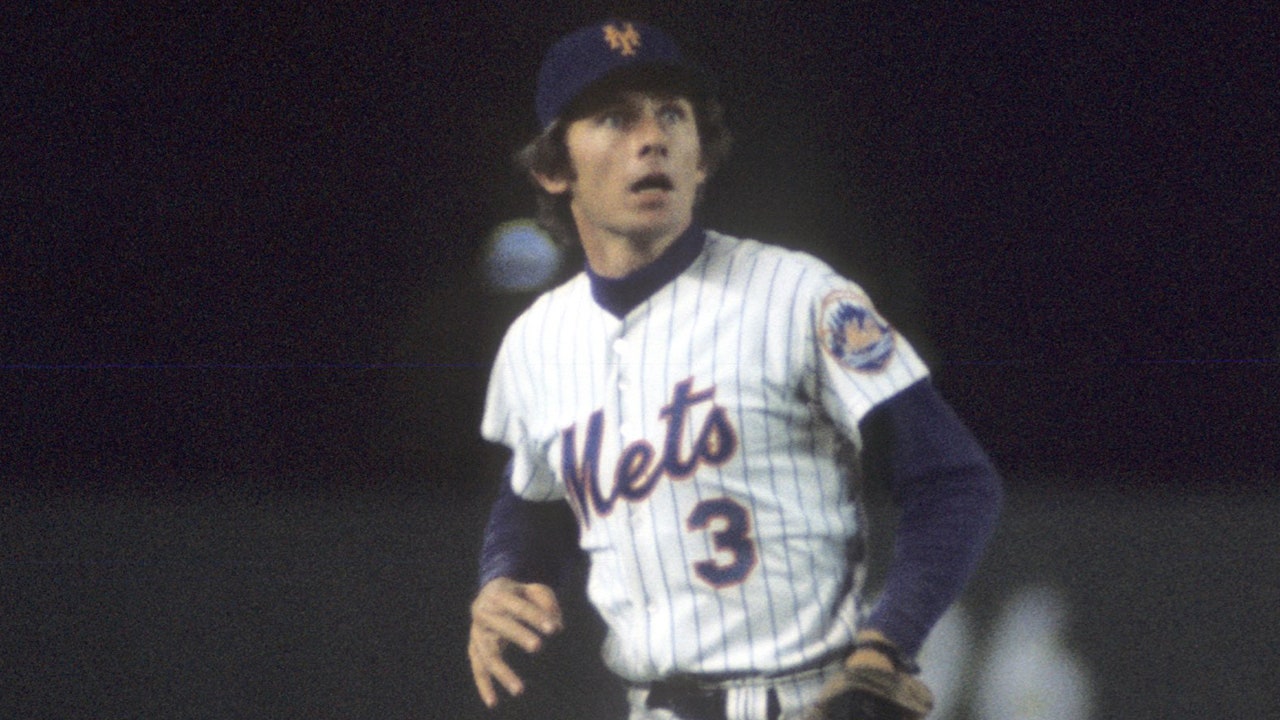Bud Harrelson, Mets shortstop in fracas with Pete Rose, dies at 79
During a major league career that lasted from 1965 to 80, the light-hitting Mr. Harrelson was selected to two All-Star Games and won a Gold Glove. Known to family and teammates as Buddy, he spent his first 13 seasons with New York and was the only man in a Mets uniform for both their World Series titles.
The first came as the infield anchor of the 1969 Miracle Mets, the other as the club’s third base coach in 1986. In one of the most memorable scenes in baseball history, it was a euphoric Mr. Harrelson who waved home Ray Knight with the winning run on Bill Buckner’s error in Game 6 of the ’86 World Series against Boston.
Mr. Harrelson also managed the Mets for nearly two seasons, guiding them to a second-place NL East finish in 1990 after taking over in late May.
In Game 3 of the 1973 NL Championship Series between the Mets and Cincinnati Reds, Rose slid hard into Mr. Harrelson at second base on a double play. The two ended up toe-to-toe and then wrestling in the infield dirt at Shea Stadium, triggering a wild, bench-clearing brawl that spilled into the outfield.
Outweighed by more than 30 pounds, the scrawny, gritty Mr. Harrelson got the worst of it.
But he didn’t back down.
“I have no regrets about going at it with Rose. I did what I had to do to protect myself, and Pete did what he thought he had to do to try to motivate his team,” Mr. Harrelson wrote in “Turning Two: My Journey to the Top of the World and Back with the New York Mets,” a 2012 memoir co-authored by Phil Pepe.
The game was held up as irate fans hurled objects at Rose, and the Reds were pulled off the field by Manager Sparky Anderson until order was restored. Mets Manager Yogi Berra and players including Willie Mays and Tom Seaver went out to left field to calm the crowd.
Cincinnati players apparently were peeved about a comment from Mr. Harrelson after Game 2. Making light of his own shortcomings, Mr. Harrelson said Mets pitcher Jon Matlack “made the Big Red Machine look like me hitting” after the left-hander tossed a two-hit shutout.
“I didn’t think it was all that bad. I was kind of putting myself down a little bit, but I was also putting them down,” Mr. Harrelson said. “Then I heard that they were going to come after me and all that, so I figured that was it right there. And when Pete hit me after I’d already thrown the ball, I got mad. And we had the little match. He just kind of lifted me up, laid me down to sleep and it was all over.”
The two became teammates in Philadelphia years later and when their playing days were long over, Mr. Harrelson said Rose, baseball’s career hits leader, signed a photo of the fight for him and wrote, “Thanks for making me famous.”
Mr. Harrelson was traded to the Phillies in 1978 and spent two years with them before playing his final season for the Texas Rangers. A switch-hitter, he finished his career with a .236 batting average and .616 OPS. He hit seven home runs — never more than one in a season — and stole 127 bases, including a career-high 28 for the Mets in 1971.
Despite his lack of power, Mr. Harrelson could be pesky at the plate. He drew 95 walks in 1970 and was always a good bunter. He batted .333 lifetime (20 for 60) against Hall of Famer Bob Gibson, with 14 walks and just three strikeouts for a .459 on-base percentage.
“I have always said I’ll take God to three-and-two and take my chances. I might foul two off before He gave me ball four,” Mr. Harrelson wrote.
Mr. Harrelson came off the bench in the 1970 All-Star Game in Cincinnati, getting two hits and scoring twice. He was the National League’s starting shortstop the following season at Tiger Stadium and won his only Gold Glove that year.
Mr. Harrelson went 3 for 17 (.176) with three walks when the Mets beat heavily favored Baltimore in the 1969 World Series. He had a .379 on-base percentage during a seven-game loss to Oakland in the ’73 Series, after New York upset Cincinnati in the playoffs.
As manager of the Mets from 1990-91, Mr. Harrelson compiled a 145-129 record.
Derrel McKinley Harrelson was born in Niles, Calif. on D-Day: June 6, 1944. He attended San Francisco State College (now university) and signed with the Mets in June 1963 for $13,500 even though the New York Yankees offered $3,000 more.
Mr. Harrelson said he was a little intimidated by the Yankees’ storied history and worried he might get stuck in the minors with them. He figured the Mets, an expansion franchise in 1962, might provide a faster path to the majors.
His two marriages ended in divorce. A list of survivors was not immediately available.
In his later years, he became part-owner of the Long Island Ducks, an independent minor league team located minutes from his home. He managed Rose’s son, Pete Jr., with the Ducks, and the elder Rose even attended a couple of games, Mr. Harrelson said.







